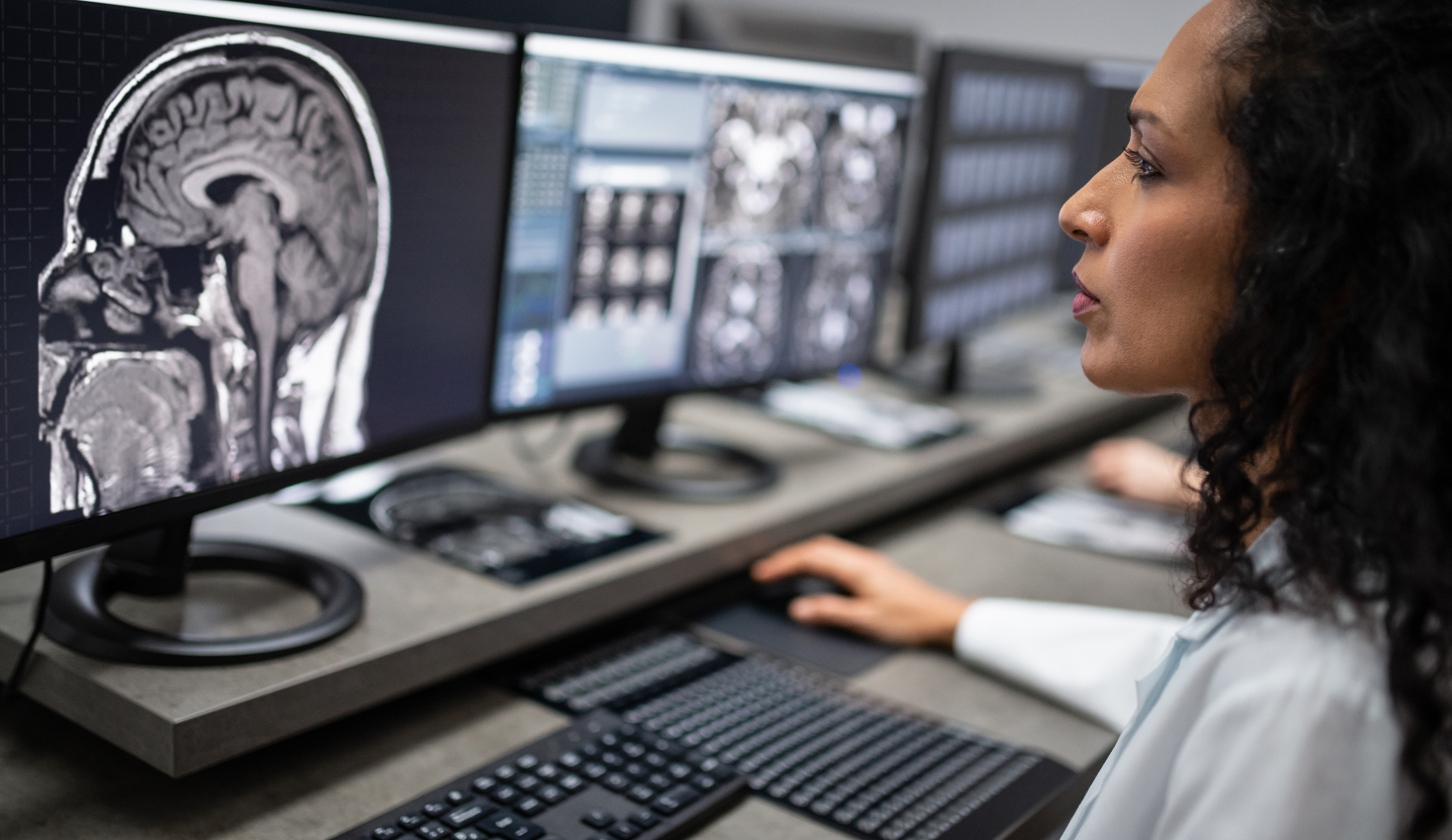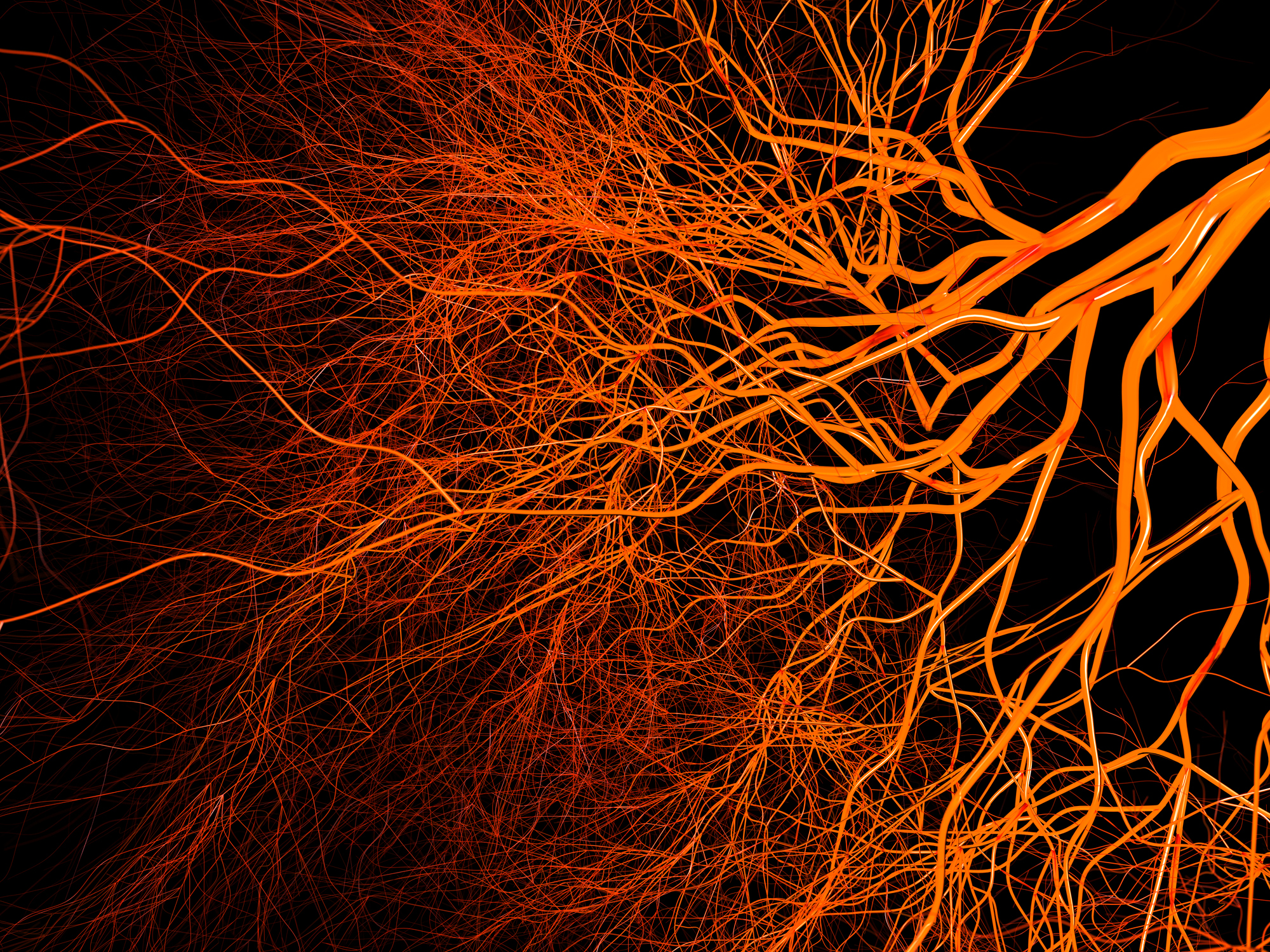Haga clic aquí para leer este boletín en español.
Dementia is a broad term that describes memory or thinking problems that interfere with activities of everyday life. Dementia is the result of damage to brain cells. There are different causes of dementia, each of which produces different symptoms.
Alzheimer’s Disease
Alzheimer’s disease is the most common cause of dementia, responsible for 60%-80% of cases.
In Alzheimer’s disease, protein deposits and fibers called amyloid plaques and tau tangles, respectively, are thought to block brain cell communication and cause damage.
Alzheimer’s, like all causes of dementia, is progressive. This means that symptoms may first be subtle, then can become more severe over time.
Alzheimer’s disease usually affects the formation of new memories, making people forgetful. As the disease progresses, other types of thinking such as problem solving, attention, and speech may be affected.
 Clinicians diagnose Alzheimer’s by performing cognitive assessments and blood tests, and by looking at brain images. Researchers are also examining biological markers that can be used to detect Alzheimer’s at earlier stages.
Clinicians diagnose Alzheimer’s by performing cognitive assessments and blood tests, and by looking at brain images. Researchers are also examining biological markers that can be used to detect Alzheimer’s at earlier stages.
Brain Health Registry researchers are currently working on the Electronic Validation of Online Methods to Predict and Monitor Cognitive Decline Study to explore an online screening tool that could predict risk factors for Alzheimer’s Disease and lead to an earlier diagnosis. Learn more about that study here.
There is no cure for Alzheimer’s yet, but Aduhelm is an FDA-approved medication that aims to remove protein buildup in the brain and slow disease progression.
Vascular dementia
Vascular dementia is caused by reduced blood flow and oxygen supply that results in brain damage. When blood vessels in the brain are blocked, due to a major stroke or multiple minor strokes, changes in thinking can happen/be observed. However, not everyone who has had a stroke will develop vascular dementia.
 Conditions like diabetes and high blood pressure can also harm blood cells and sometimes lead to issues with memory and thinking.
Conditions like diabetes and high blood pressure can also harm blood cells and sometimes lead to issues with memory and thinking.
Frontotemporal Dementia
Frontotemporal dementia is an umbrella term for several disorders that impact parts of the brain associated with language, behavior, and personality. These brain regions, called the frontal and temporal lobes, shrink as brain cells are damaged.
Frontotemporal dementia is often diagnosed earlier in life than Alzheimer’s disease, when a person is in their forties through sixties. Changes in language or behavior can be early signs of this condition.
Parkinson’s Disease Dementia
Parkinson’s disease is characterized by changes in movement, including tremors, stiff muscles, and difficulty moving. As the disease progresses, changes in the brain can impact a person’s memory and functioning, leading to Parkinson’s disease dementia.

This form of dementia is tied to abnormal buildup of a protein called alpha-synuclein in the brain.
Lewy Body Dementia
Lewy body dementia affects over a million people in the United States and is also associated with alpha-synuclein accumulation in the brain.
Some scientists believe that this type of dementia and Parkinson’s disease dementia may occur due to the same underlying biological changes in the brain.
Mixed Dementia
Mixed dementia occurs when brain changes associated with multiple causes of dementia happen at the same time. This is extremely common. For example, people with Alzheimer’s disease can have blood vessel damage linked to vascular dementia, as well as alpha-synuclein buildup in the brain. This may be a reason why treatments targeting Alzheimer’s disease are only partially effective.
—

If you or your loved one is living with dementia, it can be helpful to understand these differences, to receive specific care and treatment. If you have questions or are concerns about our own brain health, we encourage you to speak with your doctor.
As always, we are grateful to our participants, who help us gain a better understanding of brain health.




